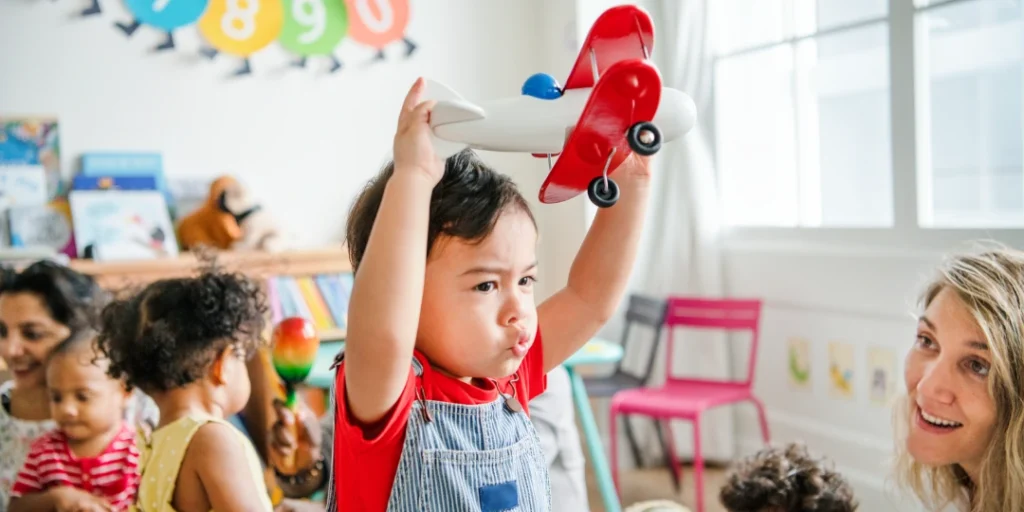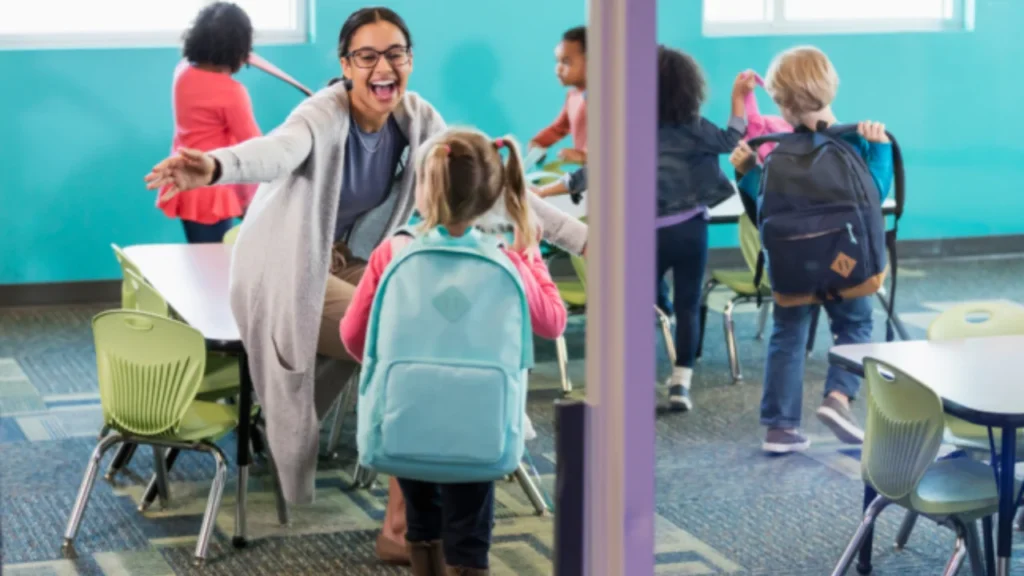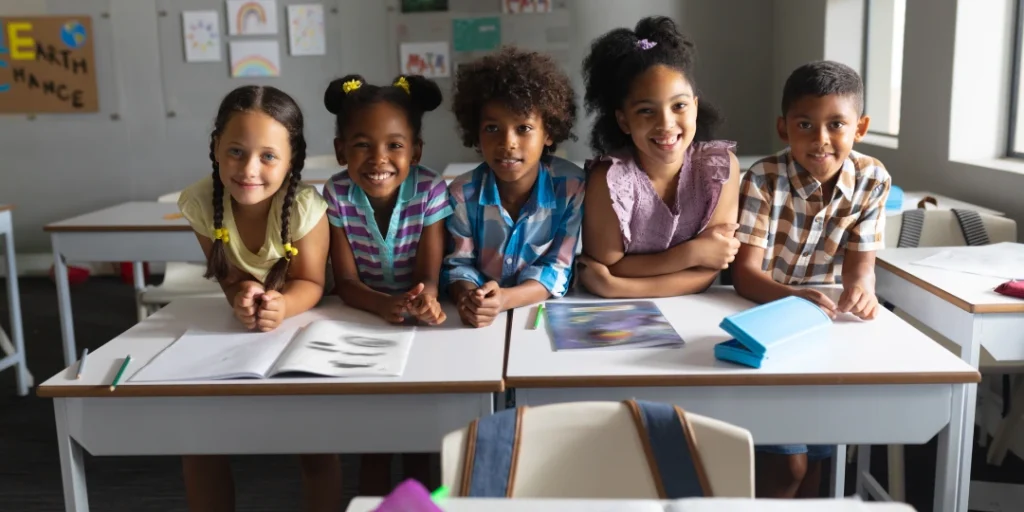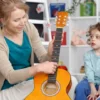![Murfreesboro Day School Unlocks Exceptional Achievement Through Powerful Family Engagement. Introduction Family collaboration is more than a supportive gesture—it is a powerful influence on a child’s educational journey. When families and schools work in harmony, students benefit from a cohesive […]](https://dayschools.org/murfreesboro/wp-content/uploads/sites/3/2025/03/New-Project-3.webp)
Table of Contents
Introduction
Family collaboration is more than a supportive gesture—it is a powerful influence on a child’s educational journey. When families and schools work in harmony, students benefit from a cohesive support network that strengthens learning and promotes positive development. At Murfreesboro Day School, the belief is simple yet profound: education flourishes when families are engaged, informed, and invested. From the earliest stages of enrollment, parents are seen as essential partners, not passive observers, in their child’s academic experience.
This partnership begins with open communication and mutual respect. Teachers and administrators at Murfreesboro Day School intentionally foster relationships built on trust, where parents feel welcome to participate, ask questions, and collaborate on solutions. This proactive engagement not only helps identify and address student challenges early but also reinforces a child’s confidence.
Furthermore, family collaboration creates a learning environment that extends beyond classroom walls. Learning becomes a shared responsibility, with educators and families jointly reinforcing values such as curiosity, resilience, and responsibility. At Murfreesboro Day School, this dynamic model of collaboration has consistently proven to be a critical factor in nurturing well-rounded, successful students who are prepared to thrive academically and socially.
Overview of Murfreesboro Day School’s Educational Philosophy
At the heart of Murfreesboro Day School’s mission is a commitment to holistic education—an approach that considers not only academic achievement but also emotional intelligence, social development, and ethical growth. The school believes in educating the “whole child,” understanding that true success encompasses more than test scores. This comprehensive philosophy guides every aspect of the school’s curriculum, culture, and community partnerships.
Family collaboration is seamlessly integrated into this educational framework. The school views parents and guardians as indispensable allies in shaping the child’s learning experience. By maintaining consistent and constructive communication with families, Murfreesboro Day School ensures that students receive unified support across both home and school environments. Teachers are trained not only to deliver rigorous instruction but also to cultivate empathy and connection with students and their families, creating a nurturing climate conducive to personal and academic growth.
In line with its holistic philosophy, Murfreesboro Day School actively encourages parental involvement in a variety of ways—through volunteering, curriculum nights, classroom visits, and collaborative planning sessions. These opportunities are more than symbolic gestures; they are strategically designed to build trust and promote shared responsibility. By weaving family collaboration into its educational philosophy, the school fosters a culture of unity and mutual respect.
Why Family Involvement Matters in Student Achievement
Decades of educational research confirm what many educators and parents already know: students perform better when their families are actively involved in their education. From improved academic performance and higher graduation rates to stronger self-esteem and reduced behavioral issues, the benefits are both measurable and deeply meaningful. Murfreesboro Day School recognizes this evidence and intentionally cultivates a culture where family involvement is not just welcomed, but embedded in the school’s daily operations.
At Murfreesboro Day School, the approach to parental engagement goes far beyond attending occasional parent-teacher conferences. It includes creating multiple access points for families to engage—academically, socially, and emotionally. Whether it’s through co-developing learning goals, participating in school planning committees, or accessing student progress through digital platforms, parents are given the tools and opportunities to stay informed and involved. This accessibility fosters transparency, builds trust, and ultimately enhances students’ sense of security and motivation.
Moreover, when students see their parents taking an active interest in their schooling, it communicates a powerful message: education matters. This emotional reinforcement can dramatically boost a child’s confidence and drive. At Murfreesboro Day School, students regularly witness their parents attending workshops, engaging in school events, or collaborating with teachers, which strengthens their sense of belonging and commitment.

Foundations of Family Collaboration at Murfreesboro Day School
The foundation of family collaboration at Murfreesboro Day School is deeply rooted in values of transparency, respect, and shared purpose. From the first point of contact, the school extends an open invitation to families to become active participants in the learning journey. This inclusive philosophy ensures that every family—regardless of background, schedule, or circumstance—feels welcomed and empowered. Murfreesboro Day School views families not just as observers but as crucial partners in a child’s academic and personal development.
This commitment to partnership begins early. During student orientation and parent onboarding, families are introduced to the school’s communication practices, educational goals, and engagement opportunities. Teachers and staff emphasize the importance of two-way dialogue and actively seek input from families regarding their child’s learning style, interests, and needs. This early collaboration creates a baseline of trust that continues to grow throughout the academic year. At Murfreesboro Day School, families are consistently reminded that their voices matter—and are needed—to shape the most effective educational path for each student.
Moreover, this collaborative ethos helps cultivate a strong sense of community. Parents, guardians, and educators are unified under a shared mission: to support every student’s potential. By establishing strong relational foundations early on, Murfreesboro Day School creates an atmosphere where families feel confident engaging with teachers and administrators. This trust is essential, as it fosters open conversations and timely interventions, ultimately ensuring that students receive consistent support from both school and home.
Communication Strategies That Build Strong Partnerships
At Murfreesboro Day School, effective communication is more than just informative—it is strategic and relationship-driven. The school understands that communication is the backbone of any successful family collaboration, and as such, it uses a diverse set of tools to keep parents consistently engaged. Weekly newsletters, timely email updates, real-time messaging through secure apps, and an intuitive parent portal ensure that families are always in the loop regarding their child’s progress.
What sets Murfreesboro Day School apart is the personalized approach to communication. Teachers are encouraged to build rapport with each family, tailoring outreach methods to accommodate preferences and schedules. For example, a quick phone call or a personalized email might be used to celebrate a student’s achievement or discuss a developing concern. These small yet meaningful interactions foster a climate of respect and care. When families feel seen and heard, they are more likely to remain actively involved in their child’s educational journey.
In addition to one-on-one communication, the school hosts regular forums and digital Q&A sessions where families can voice questions, offer feedback, and stay informed about school-wide initiatives. These efforts ensure that communication flows in both directions, creating transparency and reinforcing mutual accountability. Murfreesboro Day School treats every family as an integral member of the educational team, and its proactive communication strategies help solidify the trust and cooperation that fuel student success.
Parent-Teacher Conferences: More Than Just Meetings
Parent-teacher conferences at Murfreesboro Day School are not one-size-fits-all meetings—they are personalized, strategic collaborations. These conferences are thoughtfully designed to go beyond discussing grades or attendance. Instead, they serve as dynamic problem-solving sessions where educators and families come together to celebrate successes, identify challenges, and co-create targeted support strategies that align with each student’s academic and emotional needs.
At Murfreesboro Day School, these conferences are intentionally scheduled throughout the year to allow for real-time intervention and goal-setting. Teachers prepare by gathering not only academic data but also insights into social interactions, learning preferences, and behavioral trends. Parents are encouraged to come with questions and observations from home, creating a fuller picture of the child’s experiences. This collaborative approach ensures that families leave conferences not just informed—but empowered with actionable steps to support learning at home.
What truly distinguishes Murfreesboro Day School is the follow-through that occurs after each conference. Educators provide ongoing updates and check-ins to ensure that the plans agreed upon during the meeting are being implemented effectively. Additionally, families are welcomed to schedule follow-up meetings or reach out as needed, reinforcing the open-door policy that is central to the school’s philosophy. By transforming parent-teacher conferences into meaningful, two-way conversations, Murfreesboro Day School strengthens its commitment to student growth through consistent, individualized family engagement.

Engaging Families Through Workshops and Educational Events
Murfreesboro Day School actively creates opportunities for parents to become lifelong learners alongside their children. One of the school’s standout strategies is the regular hosting of family-focused workshops and educational events. These sessions are designed to equip families with practical tools, insights, and resources that enhance their ability to support learning at home. Topics range from understanding early literacy development and fostering executive functioning skills to navigating digital learning platforms and managing screen time effectively.
These events are not limited to academic subjects. Murfreesboro Day School also offers sessions on emotional intelligence, mindfulness, and parenting strategies that align with the school’s whole-child philosophy. These learning opportunities are often facilitated by educators, counselors, and external experts, ensuring parents receive current, research-based guidance. Events are offered at various times—both in person and virtually—to accommodate diverse schedules and maximize participation. This flexibility reflects the school’s commitment to inclusivity and meaningful engagement.
By participating in these workshops, families build a stronger connection to the school’s mission and gain confidence in their roles as co-educators. Parents leave with actionable strategies they can apply immediately at home, reinforcing what students are learning in the classroom. These shared experiences also foster a deeper sense of community among families. Murfreesboro Day School uses educational events not just as outreach but as relationship-building platforms, enhancing trust and mutual support across the entire school ecosystem.
Using Technology to Foster Ongoing Family Engagement
In today’s fast-paced world, technology plays a vital role in keeping families informed, connected, and engaged. Murfreesboro Day School has embraced digital innovation as a means to strengthen family-school communication. The school utilizes user-friendly platforms like parent portals, classroom apps, and virtual conferencing tools to ensure that families have instant access to updates, academic records, and classroom activities. These tools empower parents to stay consistently involved, no matter their location or schedule.
Beyond administrative convenience, Murfreesboro Day School integrates technology into family collaboration with intentionality. Teachers share lesson highlights, photos of classroom projects, and student milestones in real time, helping families feel present and connected even when they can’t physically attend school events. The school also hosts virtual workshops, webinars, and digital open houses, ensuring families can participate in learning opportunities from the comfort of home. These features are especially valuable for working parents or those navigating logistical challenges.
Importantly, the school offers ongoing tech support and guidance to help families use these platforms effectively. New families receive training during orientation, and ongoing tutorials are available throughout the year. By removing barriers to digital access and building digital literacy, Murfreesboro Day School ensures equitable engagement across all households. This thoughtful use of technology not only modernizes family communication but also reinforces the school’s unwavering commitment to accessibility, transparency, and partnership in every phase of a child’s academic journey.

Collaborative Goal Setting: Aligning School and Home Expectations
One of the most effective ways Murfreesboro Day School strengthens family partnerships is through collaborative goal setting. The school encourages parents and educators to work together in defining meaningful academic and developmental goals for each student. These shared objectives ensure alignment between classroom instruction and home support, creating a unified roadmap for progress. Whether focusing on reading fluency, social-emotional growth, or behavioral milestones, goal setting becomes a strategic tool that reinforces student achievement.
This process is deeply personalized. At the beginning of each term, teachers engage families in discussions about their child’s strengths, areas for improvement, and individual learning styles. Together, they establish clear, attainable goals and outline the steps necessary to reach them. This cooperative process promotes accountability while ensuring that goals are realistic, culturally responsive, and tailored to each child’s unique circumstances. Murfreesboro Day School’s educators are trained to listen, guide, and co-create plans that families can reinforce at home.
Follow-up is just as critical as the initial planning. Murfreesboro Day School ensures that progress is monitored and reviewed regularly through check-ins, data sharing, and informal feedback loops. Adjustments are made as needed, and parents are kept in the loop every step of the way. This ongoing collaboration builds a powerful support system that not only boosts academic performance but also nurtures a child’s motivation and resilience. When school and home expectations are aligned, students receive consistent guidance—and thrive because of it.
Supporting Diverse Family Needs with Tailored Approaches
Murfreesboro Day School recognizes that no two families are the same. Cultural backgrounds, languages, schedules, and family structures vary widely—and the school embraces this diversity with intentional, flexible engagement strategies. Rather than expecting all families to participate in the same way, Murfreesboro Day School tailors its collaboration methods to meet families where they are. This inclusive mindset ensures that every household feels seen, valued, and supported in contributing to their child’s education.
Language accessibility is a key component of the school’s approach. Murfreesboro Day School offers translated materials and interpreter services for non-English-speaking families to ensure they can fully participate in school communications and activities. Additionally, staff are trained in cultural sensitivity, ensuring that all families receive respectful and relevant engagement. This commitment to cultural competence helps build trust and strengthens the bonds between home and school, especially among underrepresented or historically marginalized groups.
Beyond language and culture, Murfreesboro Day School also provides flexible communication plans to accommodate parents’ work hours, transportation challenges, or access to technology. Whether through digital platforms, phone calls, in-person meetings, or mailed newsletters, families can choose how they wish to stay informed. This adaptability reflects the school’s deep respect for family circumstances and its belief that every parent or guardian deserves equal access to their child’s educational experience. In doing so, Murfreesboro Day School creates a more inclusive, equitable learning community where all families can thrive.

Measuring the Impact of Family Collaboration on Student Success
Understanding the value of family collaboration isn’t just a theory at Murfreesboro Day School—it’s a measurable priority. The school uses a range of tools to assess how family involvement directly influences student outcomes. By combining parent surveys, academic performance data, attendance records, and behavioral insights, Murfreesboro Day School is able to track the effectiveness of its engagement initiatives. This evidence-based approach ensures that family partnership programs remain purposeful and aligned with student success.
Feedback from families plays a crucial role in this process. Regular surveys and listening sessions allow parents to share their experiences, identify barriers to involvement, and suggest improvements. Murfreesboro Day School takes this feedback seriously, using it to refine its communication methods, event planning, and support resources. This ongoing dialogue ensures that family engagement strategies are not only effective but also responsive to evolving community needs.
Moreover, academic trends at Murfreesboro Day School consistently affirm the connection between strong family partnerships and student achievement. Students with actively involved families tend to perform better on assessments, show higher motivation, and demonstrate stronger social-emotional skills. By maintaining a data-informed approach, the school continually evaluates which programs are working and where improvements can be made. This commitment to reflection and refinement ensures that Murfreesboro Day School remains a leader in meaningful, measurable family collaboration.
Conclusion
Murfreesboro Day School is committed to viewing family collaboration as a dynamic and evolving partnership. As education continues to transform, the school actively embraces innovation and inclusivity to deepen connections between home and classroom. By integrating emerging technologies, adopting personalized communication methods, and honoring cultural diversity, Murfreesboro Day School strengthens its foundation of trust and shared responsibility. The school firmly believes that when families and educators grow in unison, students are empowered to thrive both academically and personally.
Ultimately, Murfreesboro Day School sees family collaboration as a cornerstone of its identity. The school’s dedication to mutual respect, transparent communication, and shared responsibility will continue to guide its journey. By fostering stronger family connections, Murfreesboro Day School not only supports academic excellence but also cultivates a lifelong love of learning in every student it serves.





Leave a Reply